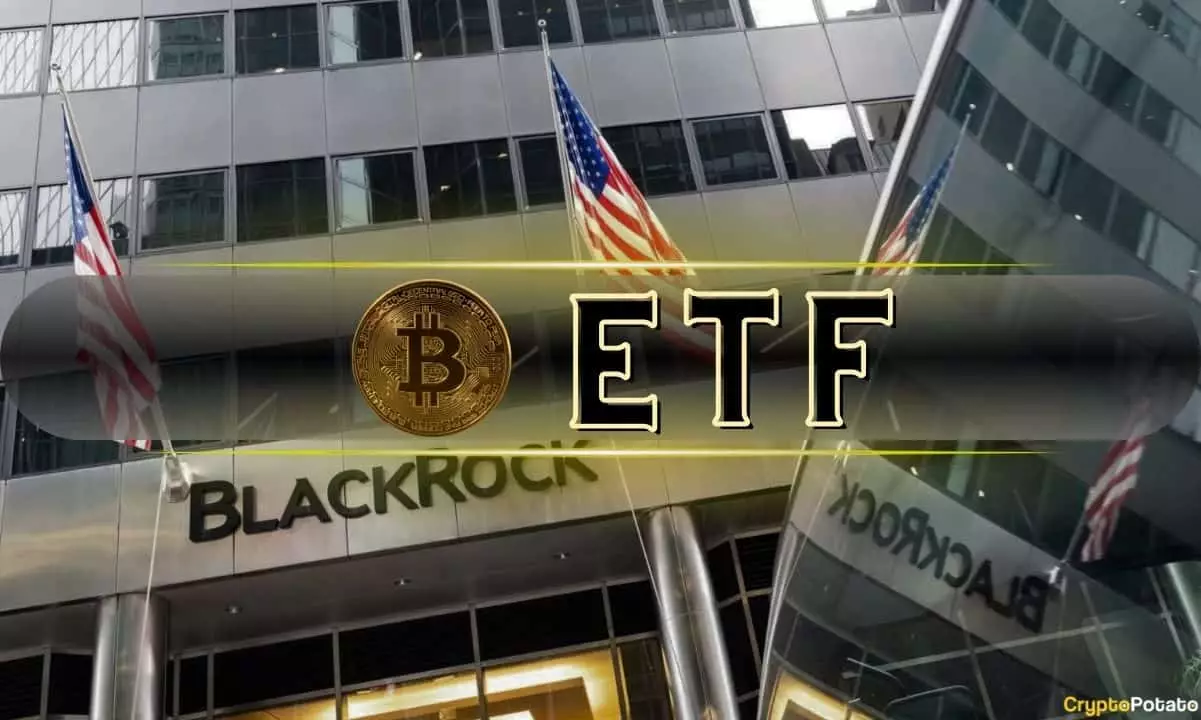On October 21, a remarkable event unfolded in the world of cryptocurrencies, as investors flocked to BlackRock’s iShares Bitcoin Trust (IBIT), acquiring an impressive 4,869 BTC valued at approximately $329 million. This surge in investment can be interpreted as a vote of confidence in BlackRock’s strategy, amidst a backdrop of broader market volatility. While other spot Bitcoin exchange-traded funds (ETFs) in the United States struggled with significant outflows, IBIT stood out, marking the sixth consecutive trading day of inflows. In total, the fund accumulated a staggering $1.47 billion over the past week alone.
The broader landscape of cryptocurrency investment has been riddled with challenges. Data suggests that aside from Fidelity’s Bitcoin ETF, many funds faced either zero or negative cash flows. In fact, the only positive performance came from BlackRock, which has not only secured a foothold in the market but also captured a noteworthy portion of the cumulative flows. According to ETF Store President Nate Geraci, the inflows experienced this past week alone would place IBIT in the top five ETF launches of 2024—a notable achievement considering there are over 570 ETFs currently in the market.
Bloomberg ETF analyst Eric Balchunas underscored the significance of BlackRock’s performance, noting that its assets under management (AUM) now rank in the top 2% of all ETFs. Moreover, the fund has ascended to the third position for year-to-date inflows among all trading ETFs, outperforming established entities like the Vanguard Total Stock Market Index Fund (VTI). This robust performance not only highlights the strength of BlackRock’s offering but also raises questions about the competitive dynamics among cryptocurrency funds.
Notably, while BlackRock’s Bitcoin Trust thrived, the same could not be said for Ethereum-related funds. Preliminary data from Farside Investors indicated a net outflow of $20.8 million for spot Ethereum ETFs on the same day, with Grayscale’s ETHE fund particularly suffering, witnessing a substantial exodus of $29.6 million. This trend communicates a critical narrative: as investors exit higher-fee structures like Grayscale, they may be reallocating their investments elsewhere, driven by the search for better value offerings.
The broader retreat in the cryptocurrency market also saw Bitcoin’s price decline by 3.3%, dropping to below $67,000 from a recent high of $69,300. The inevitable pullback can be attributed to record leverage and the escalating futures open interest, but Bitcoin exhibited resilience, recovering to $67,500 shortly after this decline. However, altcoins felt the brunt of the market’s fluctuations, with Ethereum and other digital assets such as Near Protocol, Sui, and Litecoin facing more significant losses, ultimately lowering total market capitalization to $2.44 trillion.
The developments surrounding BlackRock’s Bitcoin ETF amid a downturn in the market spotlight a fascinating divergence in investor sentiment. While IBIT reaffirms BlackRock’s prowess in navigating the cryptosphere, other funds, particularly in Ethereum, are contending with heightened tensions, characterized by outflows and shifting investor preferences. As the cryptocurrency landscape continues to evolve, the following weeks and months will be crucial in determining whether BlackRock’s success can sustain itself or if the broader market conditions will also level out to provide opportunities for other ETFs in this dynamic sector.

